
Advertising tends to creep its way into anything and everything you’re using in some form, and it seems that text messaging is a focus for some brands in India. Lately, Google Messages and its RCS messaging has been abused by businesses in India.
Over the past few weeks, Google Messages users in India have been reporting more and more ads showing up through RCS messaging. While many brands – even in the US and other countries – have used messaging apps and SMS texts to advertise new products to former customers, these ads going on in India are not necessarily the result of a user’s buying activity.
Business messaging on RCS, as Google’s Jibe website points out, is supposed to be used for things such as sending copies of your travel tickets or sending links for buying additional products based on a past purchase based on a user’s request.
Google explains:
Millions of businesses rely on SMS to communicate with mobile consumers. Credit card fraud alerts, flight status updates, and package delivery notifications are common examples of business-to-consumer SMS.
RCS (Rich Communication Services) upgrades SMS with branding, rich media, interactivity and analytics. With RCS, businesses can bring branded, interactive mobile experiences, right to the default messaging app.
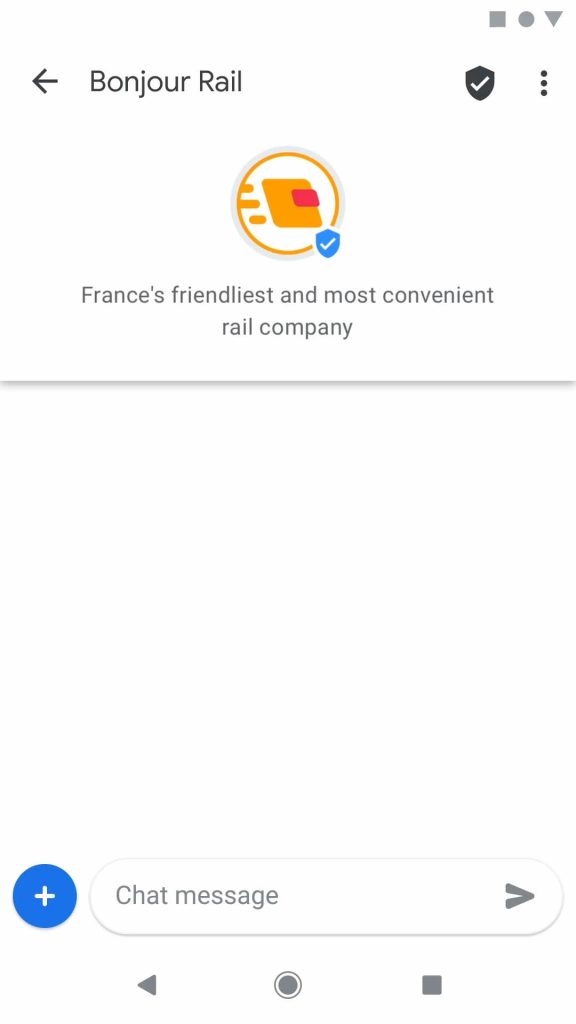

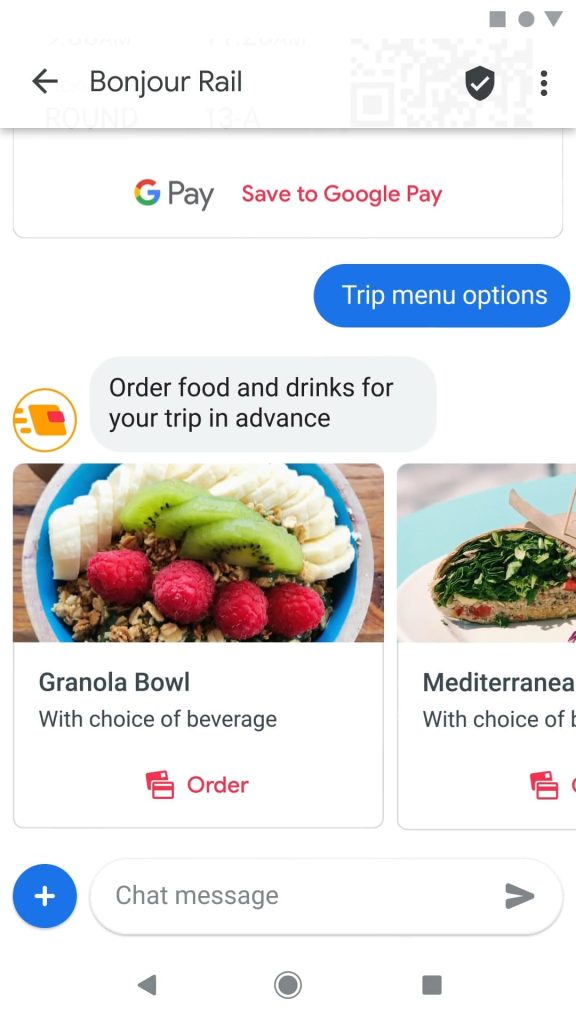
That is very much not what is happening in India right now.
Brought to our attention by Ishan Argwal on Twitter, RCS ads in Google Messages appear to be coming from “Verified Business” accounts. Google first announced that functionality back in 2020, for the purposes of allowing customers to talk to businesses. Advertising was surely part of the functionality, but it’s clearly being abused in India. Android Police says these ads have been going out for almost a year now, citing examples of ads sent by Kotak Mahindra Bank, Bajaj Finserv, Buddy Loan, and PolicyBazaar. From what we can tell from user reports, it appears the frequency of these ads has been picking up over the past few months especially.
These ads are not harmless, either, with many of the examples we’ve seen being for personal loans, a category that tends to be full of predatory practices. One user reports that they were sent one of these ads on a phone that didn’t even have an active SIM card in it.
Currently, it seems as though this practice is primarily happening in the Indian market, at least in this quantity.
What can be done about these ads in Google Messages? The solutions are all not quite ideal, unfortunately. You can report these businesses and block them from sending future messages, as pictured below.
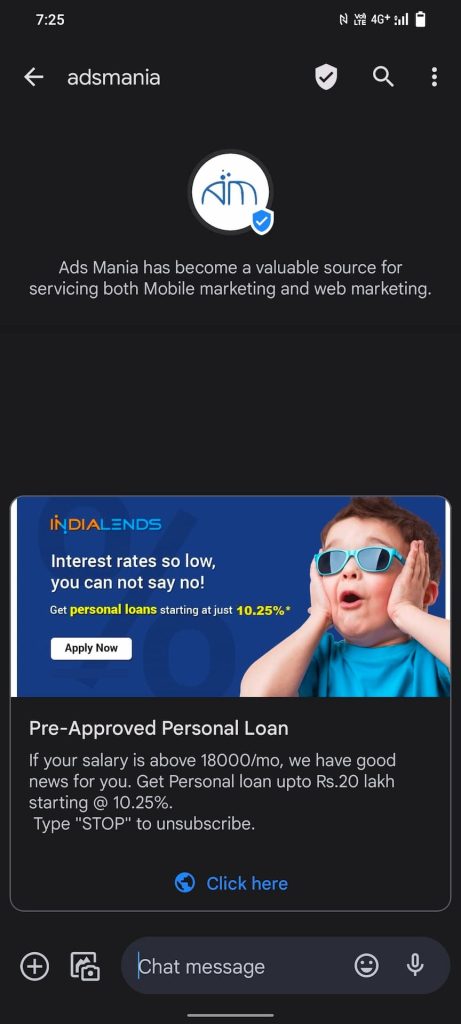
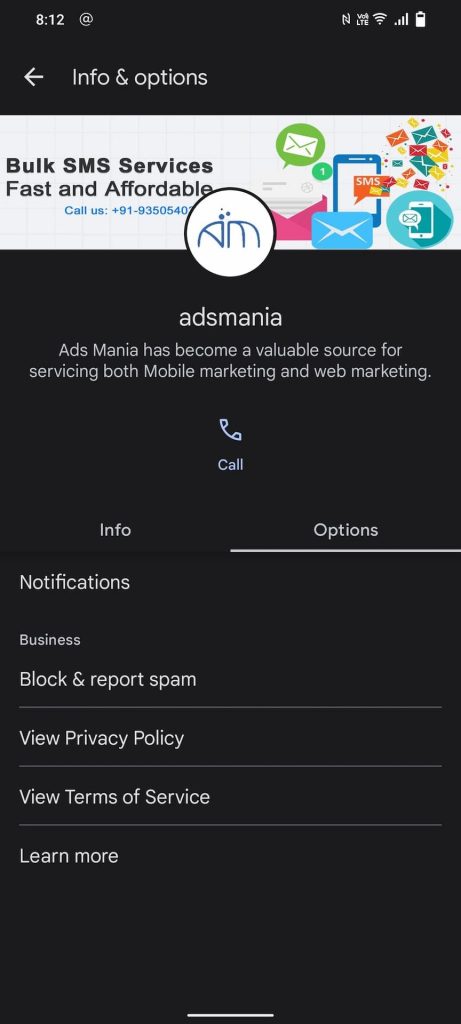
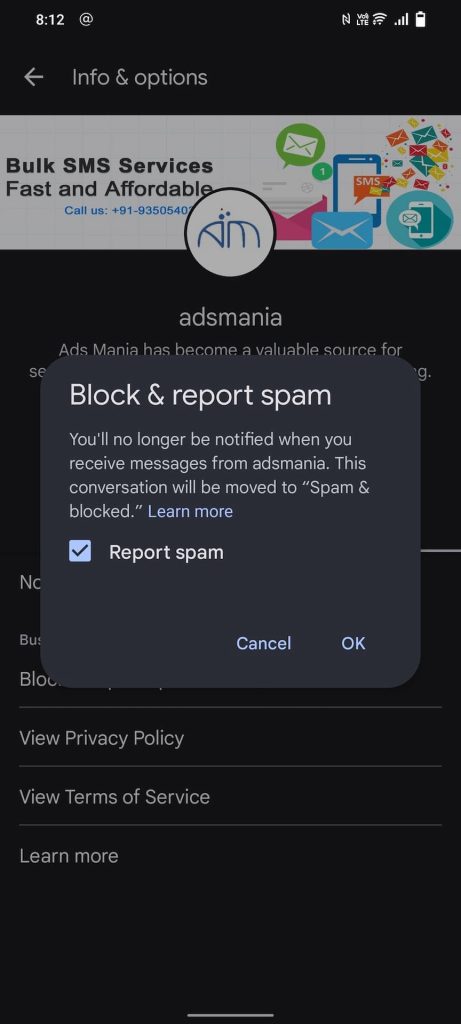
Alternatively, you can turn off RCS features entirely within the Google Messages app. This drastic move shouldn’t need to be done in the first place, but it appears to be the only guaranteed way to block these advertisements from appearing. Switching to an alternative SMS app also stops this from happening since, after all, it disables RCS as well. While this situation shouldn’t exist in the first place, turning off RCS isn’t a big deal for most people in the region, as WhatsApp and similar messaging apps are the primary forms of messaging in India.
We’ve reached out to Google regarding ads in Google Messages RCS and this clear abuse of the system, but the company was not able to provide a statement on the matter in time for publication.
More on RCS:
- RCS has over 500 million active users as Google digs at Apple yet again for ignoring the standard
- Google Messages will get end-to-end encryption for RCS group chats ‘later this year’ in beta
- Here’s what you can do with RCS and Google Messages – and why it’s worth trying
Author: Ben Schoon
Source: 9TO5Google



